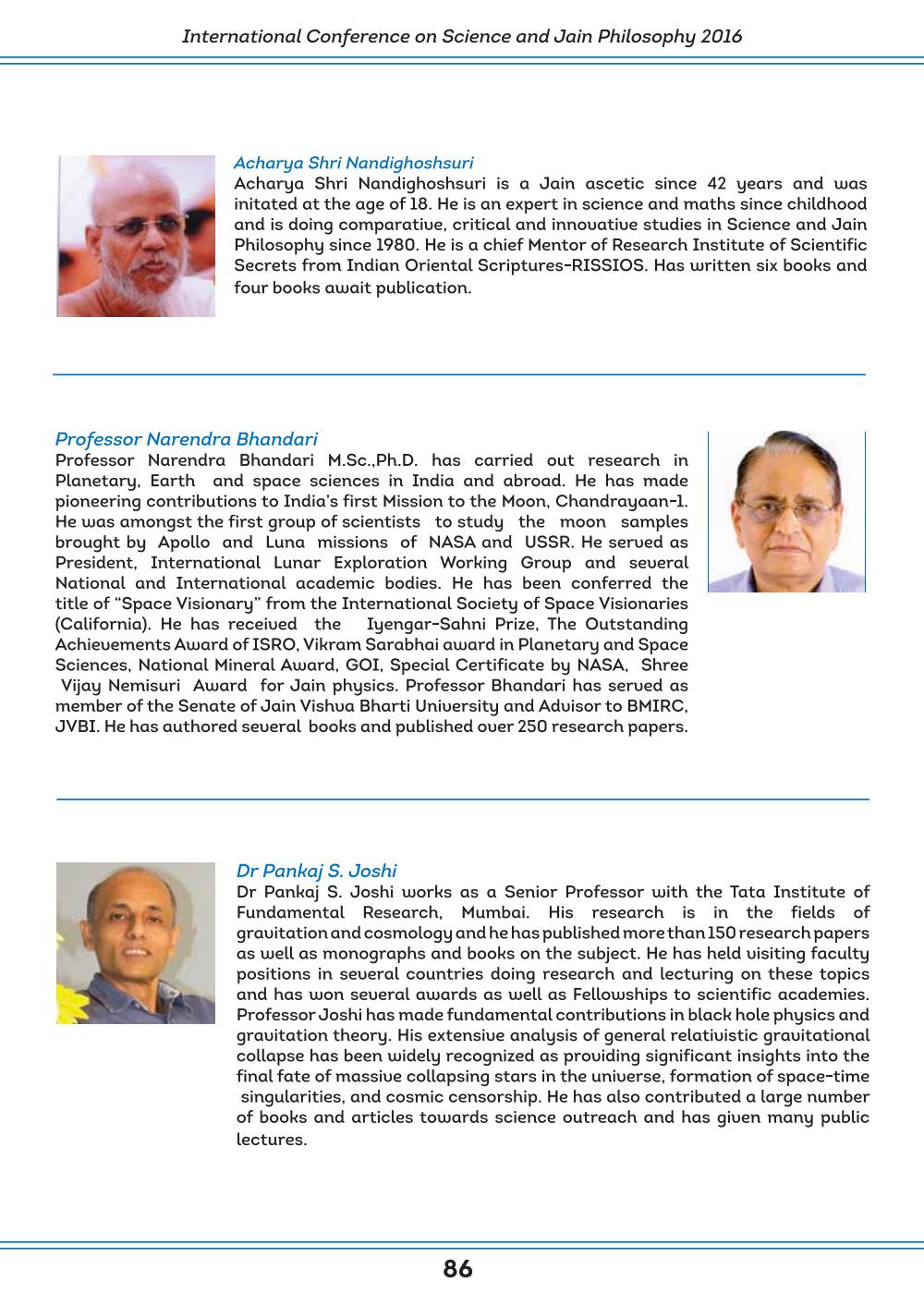________________
International Conference on Science and Jain Philosophy 2016
Acharya Shri Nandighoshsuri Acharya Shri Nandighoshsuri is a Jain ascetic since 42 years and was initated at the age of 18. He is an expert in science and maths since childhood and is doing comparative, critical and innovative studies in Science and Jain Philosophy since 1980. He is a chief Mentor of Research Institute of Scientific Secrets from Indian Oriental Scriptures-RISSIOS. Has written six books and four books await publication.
Professor Narendra Bhandari Professor Narendra Bhandari M.Sc., Ph.D. has carried out research in Planetary, Earth and space sciences in India and abroad. He has made pioneering contributions to India's first Mission to the Moon, Chandrayaan-1. He was amongst the first group of scientists to study the moon samples brought by Apollo and Luna missions of NASA and USSR. He served as President, International Lunar Exploration Working Group and several National and International academic bodies. He has been conferred the title of "Space Visionary" from the International Society of Space Visionaries (California). He has received the Iyengar-Sahni Prize, The Outstanding Achievements Award of ISRO, Vikram Sarabhai award in Planetary and Space Sciences, National Mineral Award, GOI, Special Certificate by NASA, Shree
Vijay Nemisuri Award for Jain physics. Professor Bhandari has served as member of the Senate of Jain Vishua Bharti University and Aduisor to BMIRC, JVBI. He has authored several books and published over 250 research papers.
Dr Pankaj S. Joshi Dr Pankaj S. Joshi works as a Senior Professor with the Tata Institute of Fundamental Research, Mumbai. His research is in the fields of gravitation and cosmology and he has published more than 150 research papers as well as monographs and books on the subject. He has held visiting faculty positions in several countries doing research and lecturing on these topics and has won several awards as well as Fellowships to scientific academies. Professor Joshi has made fundamental contributions in black hole physics and gravitation theory. His extensive analysis of general relativistic gravitational collapse has been widely recognized as providing significant insights into the final fate of massive collapsing stars in the universe, formation of space-time singularities, and cosmic censorship. He has also contributed a large number of books and articles towards science outreach and has given many public lectures.
86




